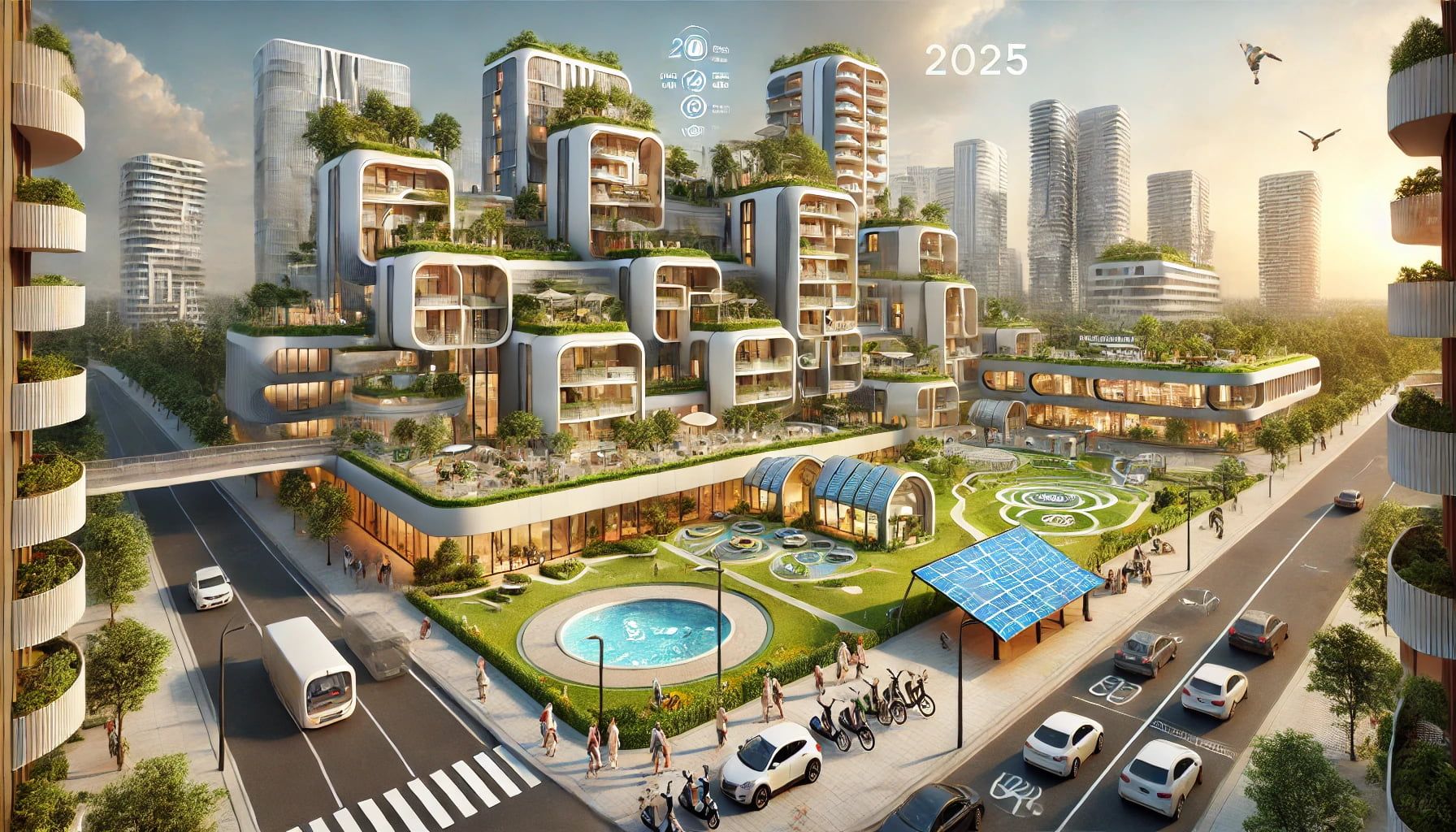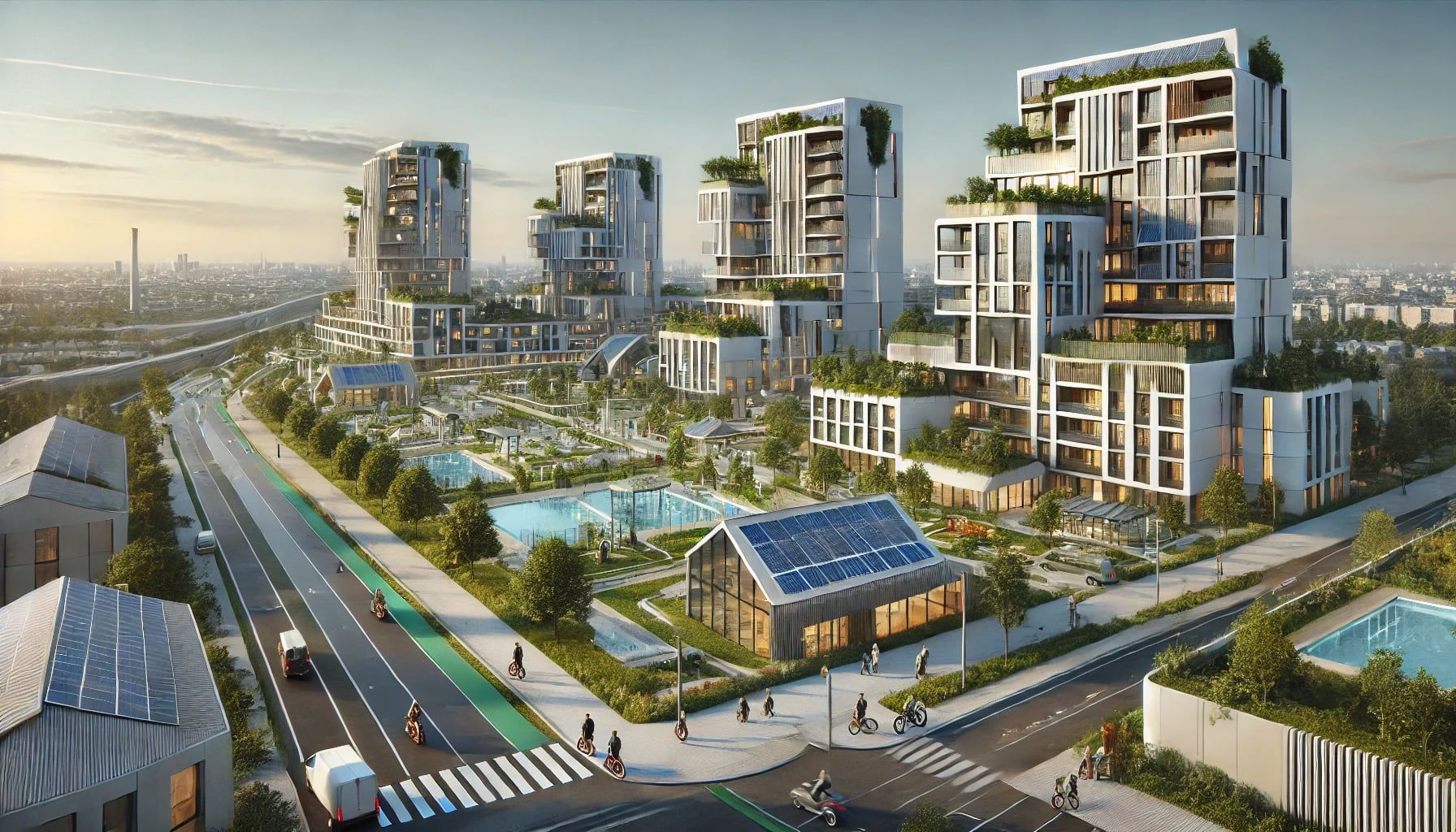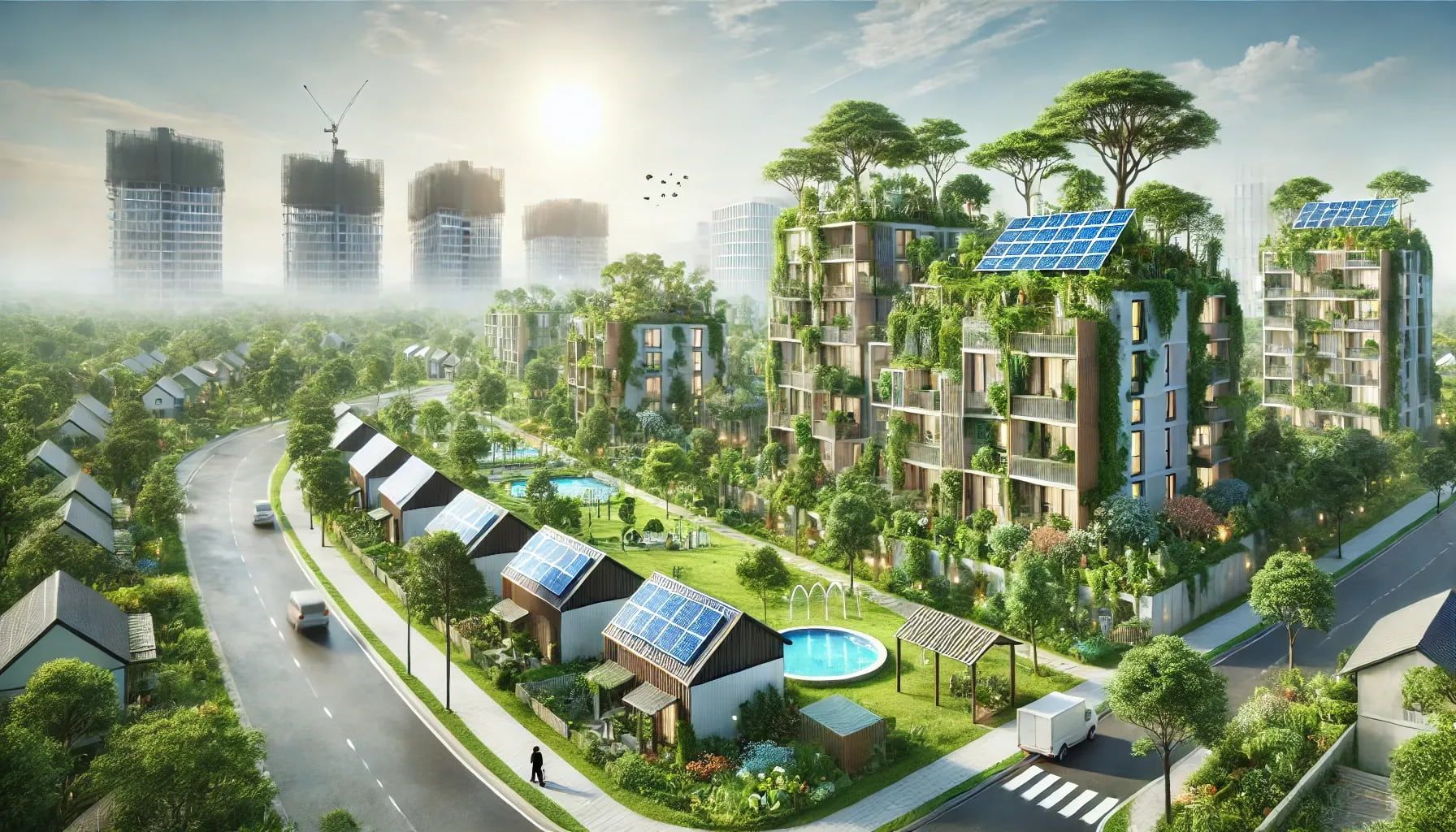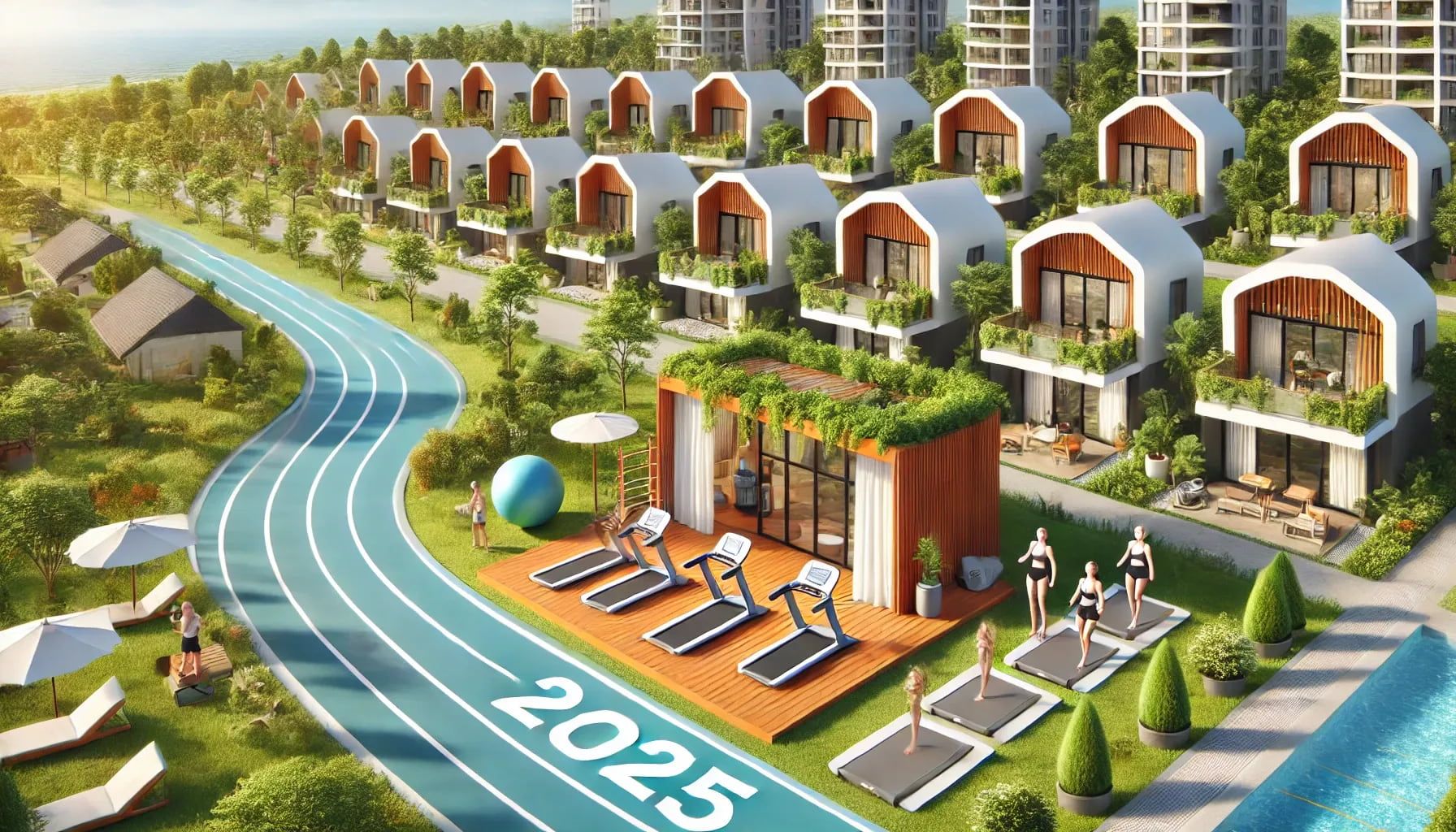
Perfect Housing Estate Plan in Poland - AI Predictions
...
Find out how artificial intelligence (AI) and real estate developers predict the development of modern housing estates for the coming years. Trends in urban planning, AI technologies, developers, innovative solutions, and the future of architecture.
What makes a housing estate in Germany truly ideal?
If you are designing such a place for people aged 20-40, you must consider many key factors. It's not just about transport accessibility, ecology, or fast internet, but also demographic trends, technological expectations, and the growing trend of remote work.
All these aspects may seem complex, but thanks to artificial intelligence (AI) analysis, we can predict which elements will be most important to future residents.

Our analysis is based on numerous reports and studies on housing trends and demographic preferences in Germany and Europe. AI plays a huge role here, as it analyzes this data, helping to predict which features will be key for estates in 2025-2035.
-"Germany Residential Market" (CBRE, 2022-2023): This report highlights the growing need for sustainable construction and transport optimization, something highly valued by young professionals. Estates near public transport will have a huge advantage.
-JLL "Living in Germany" (2021): Research indicates that young people are increasingly choosing apartments in well-connected districts. Sustainable housing, offering access to green spaces, is becoming a basic expectation.
-Federal Statistical Office (Destatis): Demographic statistics show that people aged 20-40 increasingly value privacy, the flexibility of remote work, and good transport connections to cities.
-"Gen Y and Z Housing Preferences" (PwC, 2022): The study reveals that generations Y and Z place great emphasis on ecology and technology access, especially when it comes to sustainable housing, fast internet, and smart homes.
Thanks to these reports, we can predict what the ideal housing estate will look like. Here are the key trends that AI identifies based on the data collected:

As reports from CBRE and JLL indicate, proximity to metro stations, bus stops, and railways will be one of the main requirements. Residents will expect easy access to public transport for smooth commutes to work and city centers.

Reports like "Germany Residential Market" and data from the German Green Building Council (DGNB) indicate growing demand for environmentally friendly estates. Green roofs, renewable energy sources, and efficient water management systems will become standard, with AI helping optimize these solutions.

Young residents expect their estates to be equipped with fast internet (5G) and modern technologies that make everyday life easier. "Smart Cities and Digital Infrastructure" (Siemens, 2021) emphasizes the importance of digital infrastructure in the future of housing estates. AI can help manage these systems, from lighting to security and heating.

Research from UN Habitat and Statista (2023) shows that younger generations want to live surrounded by nature. Parks, bike paths, and outdoor recreation areas will be essential for the mental and physical well-being of residents.
Young people often look for housing that won't break their budget. PwC indicates that affordability and flexible spaces—such as coworking areas or startup zones—will be crucial for the development of new estates. AI can help developers optimize construction costs to offer reasonably priced housing.

Remote work has become the norm, and reports like Global Workplace Analytics highlight the need for estates with dedicated remote workspaces and fast internet. AI can assist in managing these spaces, ensuring their availability and efficiency.
Based on these reports, it's safe to say that the future of housing estates in Germany will be a combination of modernity, sustainability, and affordability. AI helps developers analyze data, predict changes in the real estate market, and create estates that meet all these expectations.
As we can see, the future of residential construction in Germany relies on transport accessibility, sustainability, fast digitalization, and affordability. If you are a real estate developer, understanding these trends and leveraging artificial intelligence can give you a huge advantage in the market. AI not only predicts future needs but also helps create estates that stand the test of time.
Book a free consultation.
Sign up now for our free RendProletter and receive 1 email every week with a short summary of the best posts from our blog and emails with unique offers you won't find anywhere else!